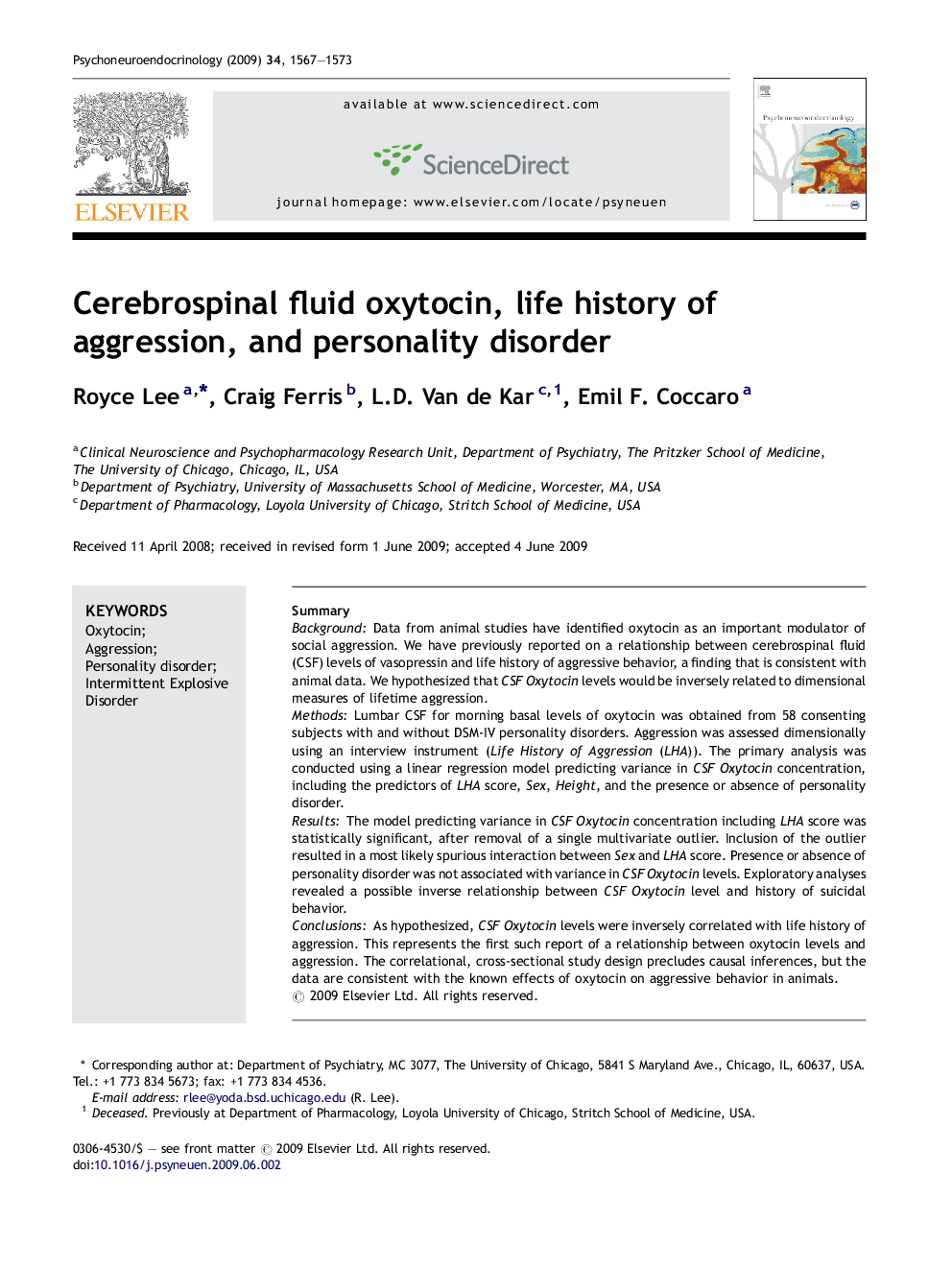| Article ID | Journal | Published Year | Pages | File Type |
|---|---|---|---|---|
| 336227 | Psychoneuroendocrinology | 2009 | 7 Pages |
SummaryBackgroundData from animal studies have identified oxytocin as an important modulator of social aggression. We have previously reported on a relationship between cerebrospinal fluid (CSF) levels of vasopressin and life history of aggressive behavior, a finding that is consistent with animal data. We hypothesized that CSF Oxytocin levels would be inversely related to dimensional measures of lifetime aggression.MethodsLumbar CSF for morning basal levels of oxytocin was obtained from 58 consenting subjects with and without DSM-IV personality disorders. Aggression was assessed dimensionally using an interview instrument (Life History of Aggression (LHA)). The primary analysis was conducted using a linear regression model predicting variance in CSF Oxytocin concentration, including the predictors of LHA score, Sex, Height, and the presence or absence of personality disorder.ResultsThe model predicting variance in CSF Oxytocin concentration including LHA score was statistically significant, after removal of a single multivariate outlier. Inclusion of the outlier resulted in a most likely spurious interaction between Sex and LHA score. Presence or absence of personality disorder was not associated with variance in CSF Oxytocin levels. Exploratory analyses revealed a possible inverse relationship between CSF Oxytocin level and history of suicidal behavior.ConclusionsAs hypothesized, CSF Oxytocin levels were inversely correlated with life history of aggression. This represents the first such report of a relationship between oxytocin levels and aggression. The correlational, cross-sectional study design precludes causal inferences, but the data are consistent with the known effects of oxytocin on aggressive behavior in animals.
